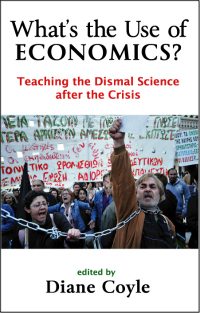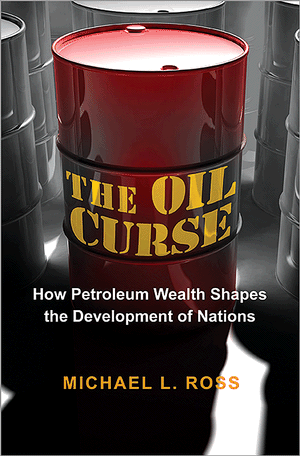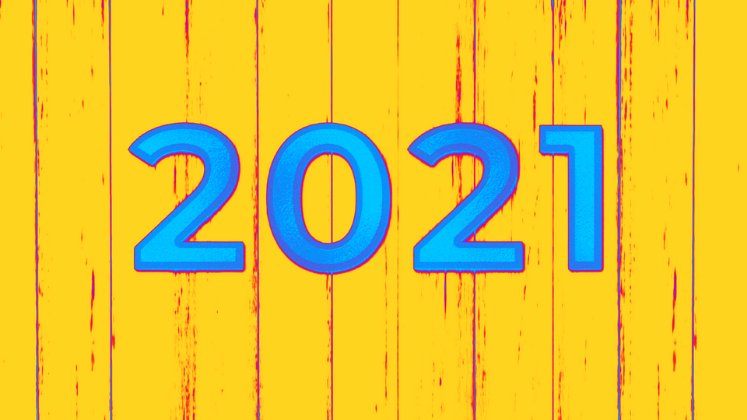Since launching in April 2012, LSE Review of Books has published reviews of over 900 books from across the social sciences. Here are the top five most-read economics reviews from 2013, covering the BRIC nations, inequality, and the teaching of economics in universities. Thank you to all of our generous reviewers for their time and enthusiasm.
…………………………………………………………………………………………………………..
 Lee Kuan Yew: The Grand Master’s Insights on China, the United States, and the World
Lee Kuan Yew: The Grand Master’s Insights on China, the United States, and the World

Lee Kuan Yew, the founding father of modern Singapore and its prime minister from 1959 to 1990, has seem more than fifty years on the world stage. This book gathers key insights from interviews, speeches, and Lee’s voluminous published writings, and covers Lee’s assessment of China’s future, the impact of technology of our economy, and how Singapore successfully opened itself to the world. Of interest for those studying power, life, and culture in any part of the world, finds Stephen Minas.
“The 21st century will see Asia recover its place in the world”, Singapore’s former prime minister Lee Kuan Yew told a Beijing audience in 1996. It is now widely recognised that the world’s economic centre of gravity is shifting eastward, from the mid-Atlantic towards the India-China border. The growing importance of Asia in the global economy has attracted increasing attention from governments, businesses and market participants. There is a lively online discussion about Asian affairs. The publication of books examining China’s role and prospects in particular sometimes seems to be following a hockey stick trajectory. Read the full review…
……………………………………………………………………………………..
The Price of Inequality: How Today’s Divided Society Endangers Our Future by Joseph E. Stiglitz
 America currently has the most inequality and the least equality of opportunity among the developed countries, writes Nobel Prize-winning economist Joseph E. Stiglitz in The Price of Inequality. While market forces play a role in this stark picture, politics has shaped those market forces. Stiglitz aims to explain how inequality affects and is affected by every aspect of national policy, and with characteristic insight he offers a vision for a more just and prosperous future, supported by a concrete program to achieve that vision. Joel Krupa encounters passionately argued points with a scattering of controversy.
America currently has the most inequality and the least equality of opportunity among the developed countries, writes Nobel Prize-winning economist Joseph E. Stiglitz in The Price of Inequality. While market forces play a role in this stark picture, politics has shaped those market forces. Stiglitz aims to explain how inequality affects and is affected by every aspect of national policy, and with characteristic insight he offers a vision for a more just and prosperous future, supported by a concrete program to achieve that vision. Joel Krupa encounters passionately argued points with a scattering of controversy.
Although it seems almost comical today, the (now unpopular) former Federal Reserve Chairman Alan Greenspan once fretted over the dangers of persistent budgetary surpluses for the American fiscal situation. Swelling influxes of cash into the Treasury, he believed, could make monetary policy more difficult to implement, as the Federal Reserve increases or decreases the money supply – and, by extension, all-important interest rates – through U.S. Treasury bill sales or purchases. Unfortunately, Greenspan’s supposedly moderating policy prescriptions (lower taxes, frothing asset bubbles, and persistent deficits) had foreseeable consequences, and reached their logical culmination in the Great Recession of 2008. Ludicrous views in hindsight, of course, but as Keynes once opined, “the ideas of economists and political philosophers, both when they are right and when they are wrong, are more powerful than is commonly understood”. Read the full review…
……………………………………………………………………………………………………………….
 What’s the Use of Economics? Teaching the Dismal Science after the Crisis
What’s the Use of Economics? Teaching the Dismal Science after the Crisis
 With the financial crisis continuing after five years, many question why economics failed either to send an adequate early warning ahead of the crisis or to resolve it quickly. This book, edited by Diane Coyle, examines what economists need to bring to their jobs, and the way in which education in universities could be improved to fit graduates better for the real world. Declan Jordan praises the work, concluding that it is likely to prompt many debates and inform many course review meetings.
With the financial crisis continuing after five years, many question why economics failed either to send an adequate early warning ahead of the crisis or to resolve it quickly. This book, edited by Diane Coyle, examines what economists need to bring to their jobs, and the way in which education in universities could be improved to fit graduates better for the real world. Declan Jordan praises the work, concluding that it is likely to prompt many debates and inform many course review meetings.
Diane Coyle has done more than most economists to explain to the general public just what it is that economists do and why economics matters. Her 2007 book, The Soulful Science, is, for this reviewer at least, the best treatment for a lay reader of the key ideas in modern economics. Since that book appeared however, economists and economics have gone through something of a crisis of confidence. Diane Coyle now edits a collection of essays on the state of the discipline from a very impressive group of contributors including economists from academia, government bodies, private organisations, and the media. Read the full review…
………………………………………………………………………………………………………………….
 The Oil Curse: How Petroleum Wealth Shapes the Development of Nations
The Oil Curse: How Petroleum Wealth Shapes the Development of Nations
 Countries that are rich in petroleum have less democracy, less economic stability, and more frequent civil wars than countries without oil. What explains this oil curse? And can it be fixed? Michael L. Ross looks at how developing nations are shaped by their mineral wealth–and how they can turn oil from a curse into a blessing. Ramin Nassehi recommends this book to scholars of development or Middle Eastern Studies, and in particular, researchers who share a passion for studying oil.
Countries that are rich in petroleum have less democracy, less economic stability, and more frequent civil wars than countries without oil. What explains this oil curse? And can it be fixed? Michael L. Ross looks at how developing nations are shaped by their mineral wealth–and how they can turn oil from a curse into a blessing. Ramin Nassehi recommends this book to scholars of development or Middle Eastern Studies, and in particular, researchers who share a passion for studying oil.
The paradoxical idea that oil is a curse for economic prosperity has become increasingly influential in the last three decades. Advocates of this idea claim that oil weakens political institutions, harms private sector promotion, increases economic volatility, hinders industrialisation, and fuels civil wars. However, recently, the ‘oil curse’ literature has been undergoing a process of ‘creative destruction’- whereby new ideas are replacing old ones- thanks to the falsification of some theories and emerging methodological criticism. Michael Ross’s recent book The Oil Curse, fits into this revisionist trend. Read the full review…
………………………………………………………………………………………………………………
 Meme Wars: The Creative Destruction of Neoclassical Economics Edited by Kalle Lasne & Adbusters
Meme Wars: The Creative Destruction of Neoclassical Economics Edited by Kalle Lasne & Adbusters
 Over the last twenty years, Adbusters magazine has aimed to challenge consumerism, champion the environment, and provide a platform for some of our greatest thinkers. In 2011, they instigated Occupy Wall Street, sparking a huge international movement. In Meme Wars, editor and founder of Adbusters Kalle Lasn aims to provide the building blocks, in texts and visuals, for a new way of looking at and changing our world. Illustrated in the distinctive style of the magazine and drawing on a wide cast of contributors Meme Wars places fresh emphasis on the environmental and human factors that are often left out in discussions of economics and examining alternative economies, finds Tom McDermott.
Over the last twenty years, Adbusters magazine has aimed to challenge consumerism, champion the environment, and provide a platform for some of our greatest thinkers. In 2011, they instigated Occupy Wall Street, sparking a huge international movement. In Meme Wars, editor and founder of Adbusters Kalle Lasn aims to provide the building blocks, in texts and visuals, for a new way of looking at and changing our world. Illustrated in the distinctive style of the magazine and drawing on a wide cast of contributors Meme Wars places fresh emphasis on the environmental and human factors that are often left out in discussions of economics and examining alternative economies, finds Tom McDermott.
What is the relationship between the economy and happiness? How do we measure progress and what is the meaning of the good life? This may not feel like familiar territory to the average economist. Many may not even recognise such questions as belonging within the remit of their subject. But this very insularity, and the disappearance of such big questions from the intellectual landscape, forms a central part of the critique of modern economics contained in Meme Wars: The creative destruction of neoclassical economics, edited by Kalle Lasne and Adbusters, the editor and magazine that started and named the Occupy Wall Street movement. Read the full review…
…………………………………………………………………………………………………………………………..







